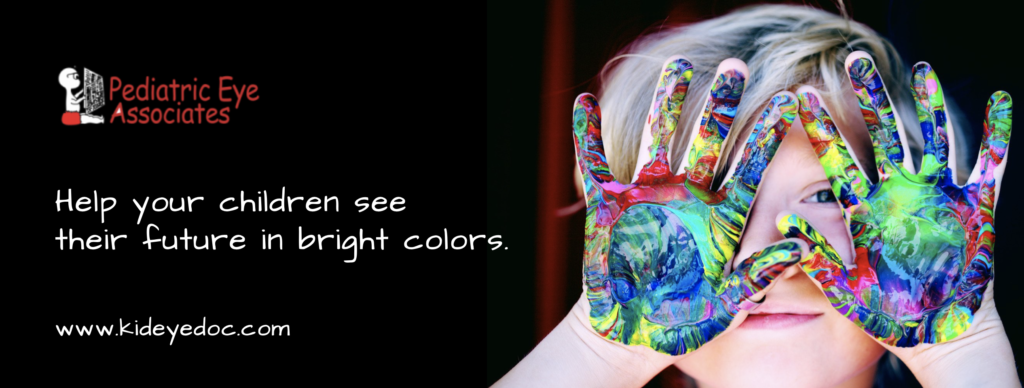The American Academy of Pediatrics suggests that your child has a well-child check at regular intervals. As part of this, and beginning at age three, pediatricians recommend a comprehensive eye exam at visits. It may even be recommended sooner if there are concerns with the development of your child’s eyes. The American Optometric Association goes even further – suggesting that infants have their first eye exam between 6 months and one year, with their next screening at age 3. Then, once your child turns 5, your child should have an eye exam yearly.
Ok, so perhaps you already knew that your child needs an eye exam every year and you already understand the importance of screening for any changes in their vision. But have you ever wondered what else your pediatric eye doctor does during an eye exam? In this blog post, we aim to give you an overview of a number of pediatric eye disorders which they screen for during a check-up.
Why Does My Child Need an In-Depth Evaluation of Their Eyes?
Oculomotor Skills
A pediatric eye examination will include an assessment of their oculomotor skills. But what are oculomotor skills? Essentially, it refers to your child’s ability to control the movement of their eyes. The action allows for visual information to be transmitted to the brain, which then tells the body how to respond to the visual stimuli. In order to assess this, the doctor will be looking at the following:
- Fixations – The ability to hold the eyes steady without moving off a target object (steady gaze and focus)
- Saccades – Ability of the eyes to make accurate eye jumps as the eyes move from one target object to another
Refractive Errors
There are four common refractive errors; myopia, hyperopia, presbyopia, and astigmatism:
- Myopia (nearsightedness) – Focused vision close up but vision that is blurry in the distance
- Hyperopia (farsightedness) – Focused vision in the distance but vision that is blurry up close
- Presbyopia- Inability to focus close up due to aging (not applicable to pediatrics)
- Astigmatism- Focus problems caused by the cornea of the eye
The most common symptom of refractive errors is blurred vision. Your child may complain they cannot see objects, either near, or far. Other symptoms can include double vision, headaches, glares or halos around bright lights, or eye strain.
Pediatric eye doctors can usually correct refractive errors with glasses or contact lenses.
Hereditary Eye Conditions
Strabismus is the most common hereditary eye condition in children. It can make the eyes appear “crossed” or out of alignment. It may happen all the time or triggered by something, such as stress.
Treatment for the condition starts with eyeglasses or possibly an eye patch. Correction is essential as it can cause vision loss. Sometimes surgery is considered for some children to correct strabismus.
How Important is it to Find a Pediatric Eye Doctor Near Me?
General pediatric practitioners at well-child exams can perform vision screening exams. School nurses also screen children in many elementary schools. These screenings are beneficial in identifying issues but do not replace a screening by a pediatric eye doctor.
Sometimes, children “fall through the cracks” or can be marked as passing due to a screening error. Your child may have an underlying eye concern that a pediatric eye doctor can best address. Establishing a relationship with a pediatric eye doctor ensures visual success for your child!
Contact Pediatric Eye Associates To Schedule Your Child’s Pediatric Eye Exam
We are aware you may have questions or concerns about your child’s eye health. Please visit our faq page or contact us.
You can visit us at:
- 22 Old Short Hills Rd. Lower Level-1, Livingston, New Jersey 07039
- Open Hours: Monday- Friday 9 am to 5 pm
- Call us at 973-422-1230
- Submit the inquiry form on our contact us page
- Facebook- Pediatric Eye Associates, LLC
We look forward to meeting your family soon!
The material contained on this site is for informational purposes only and DOES NOT CONSTITUTE THE PROVIDING OF MEDICAL ADVICE, and is not intended to be a substitute for independent professional medical judgment, advice, diagnosis, or treatment. Always seek the advice of your physician or other qualified healthcare providers with any questions or concerns you may have regarding your health.

